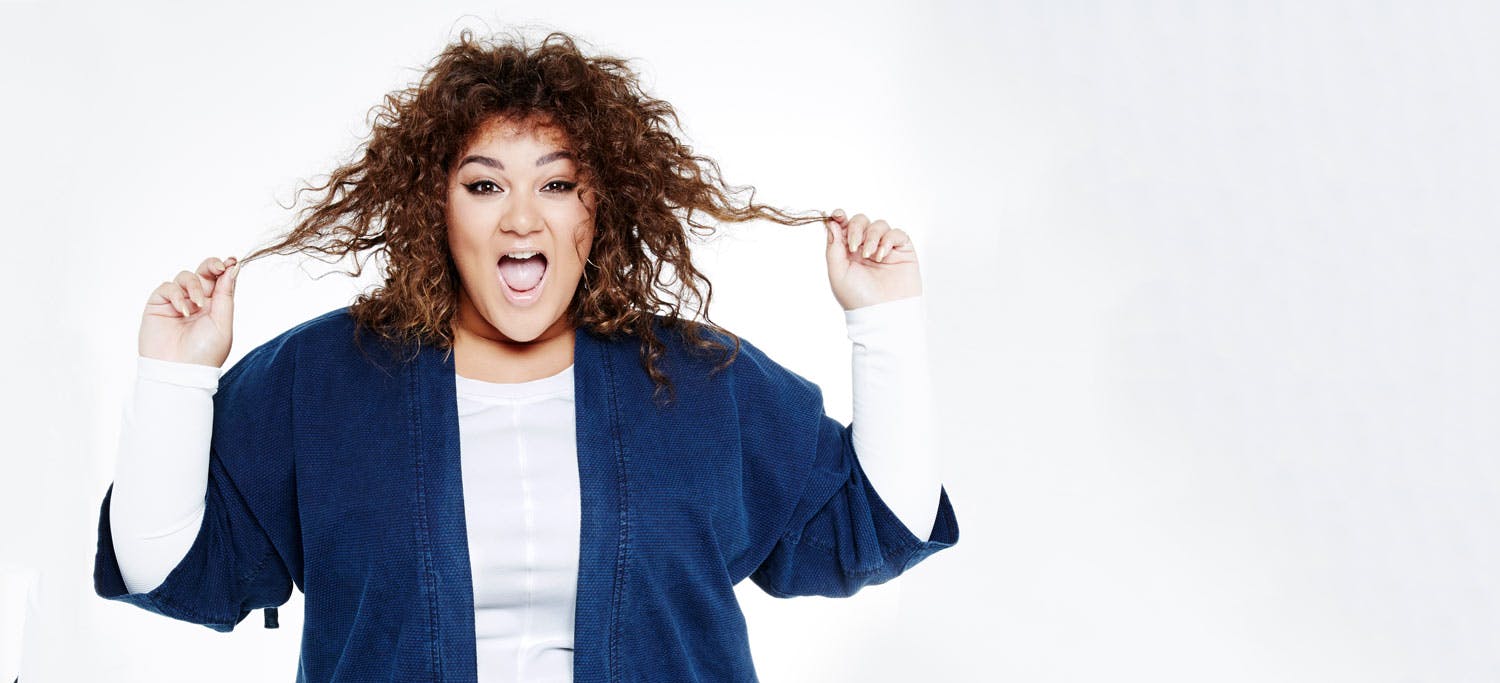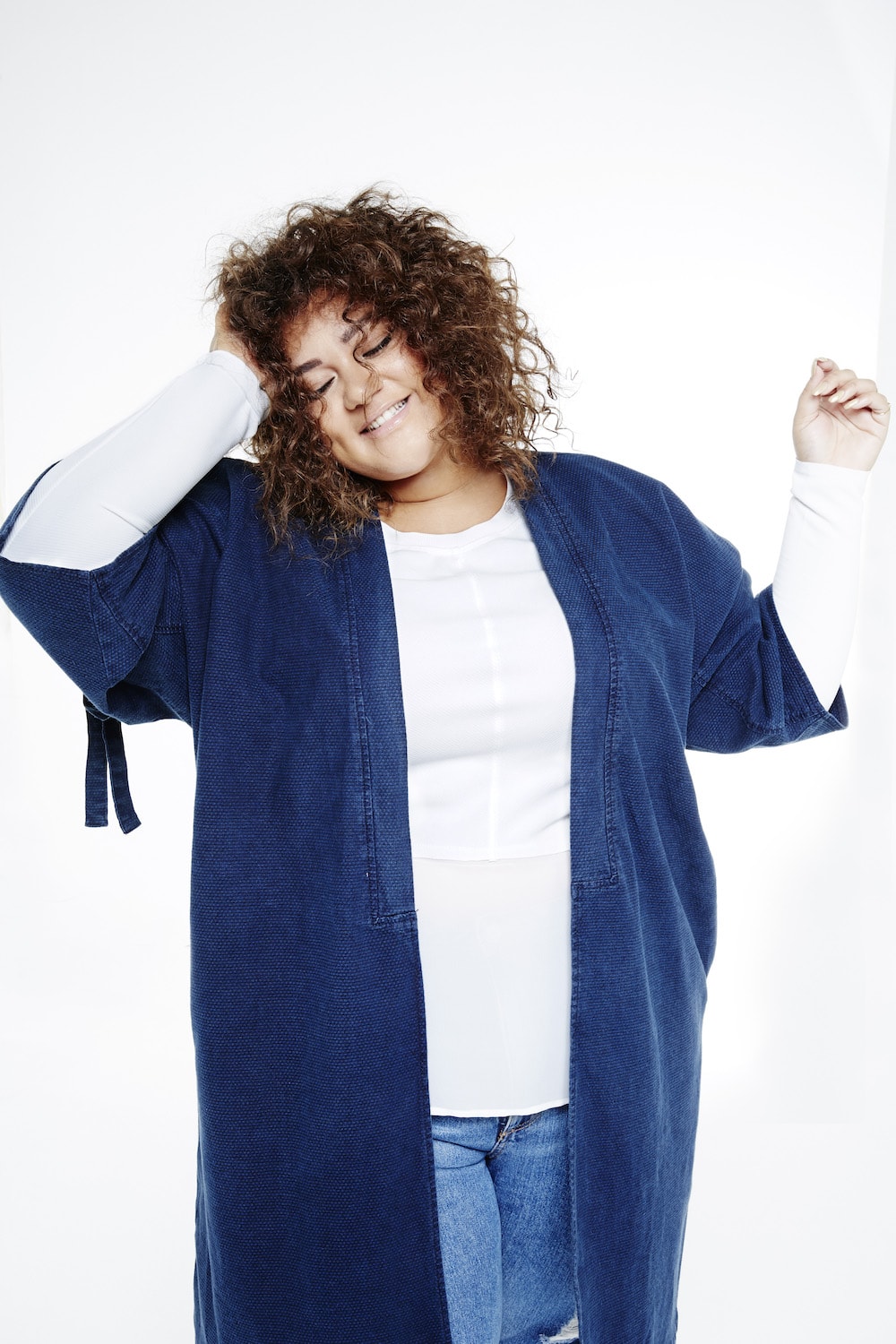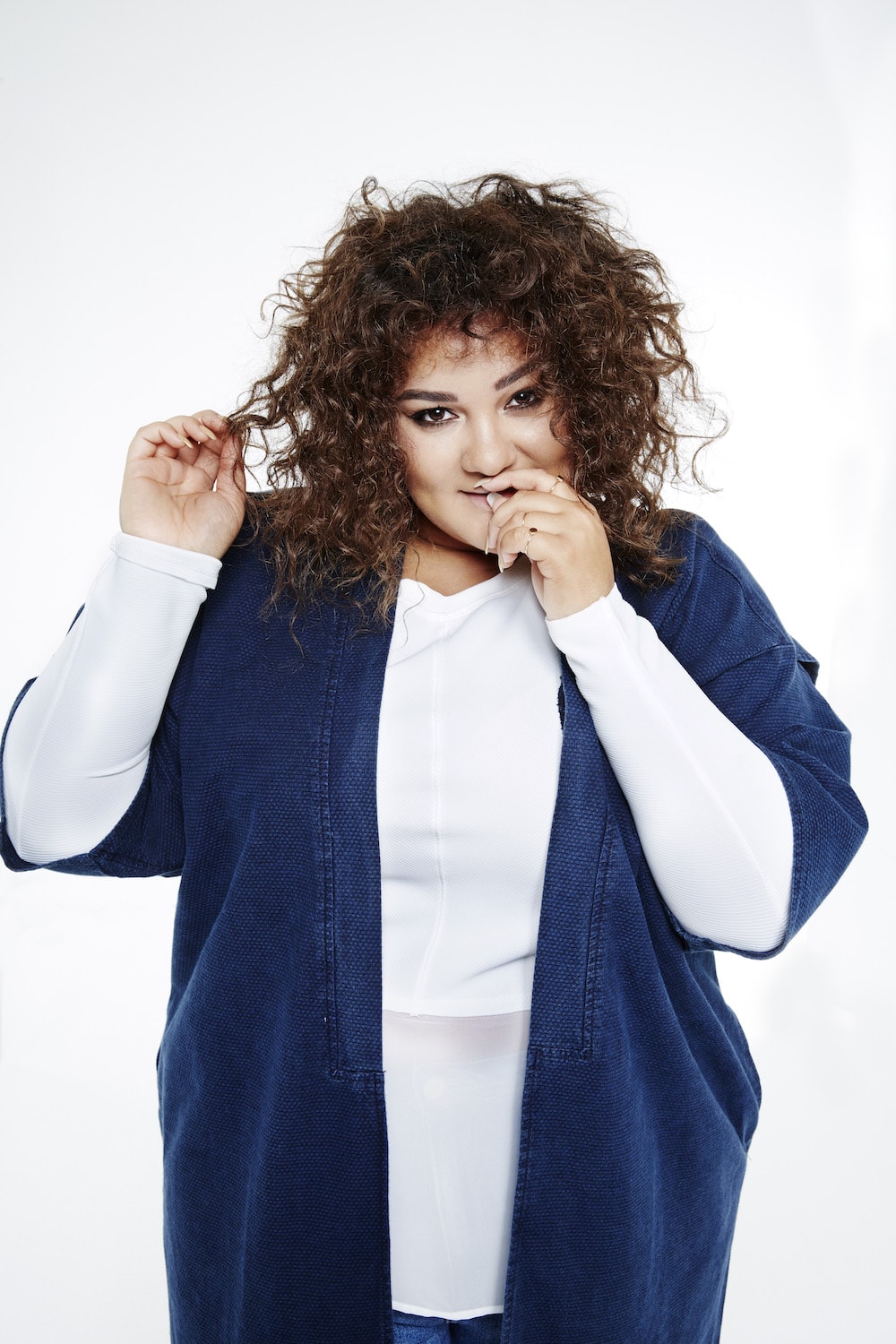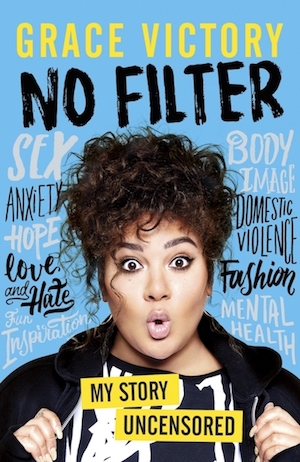Grace Victory has been called the most inspirational YouTuber in the world. We meet the British vlogger to discuss mental health and body positivity
Hi Grace! What does body positivity mean to you?
Body positivity celebrates every body type, but it originally started to celebrate bodies that are rarely seen: fatter bodies, disabled bodies, hair on the female body, stretch marks, cellulite, rolls, darker skinned women. It’s a celebration of everyone that exists – and that’s why I love it so much.
How do you get through the tough days when you’re not feeling so confident?
I try to listen to my own advice. I always preach that it’s really important to think of yourself as your own best friend. If your friend said: “I hate my body. I feel like I’m not good enough,” you’d support them, give them a confidence boost, and be there for them. That’s how we should all look after ourselves.
Sometimes we feel inadequate, often because of social media. When that happens, I tend to take a step back from the internet to have a reality check, and tell myself I’m not meant to be “aesthetically pleasing”. I’m more than that. My arms are for hugging people, and my legs for dancing. At the end of the day, my body is housing me – it’s never let me down and it’s allowing me to do all these incredible things – and I don’t want to make it feel like it’s not good enough.
Is enough being done to represent diverse body types in the high street shops, and online?
When someone creates an Instagram account, and they have a marginalised body type, that’s amazing. But I think massive corporate companies, the ones that can make a real difference to the world, are still very much failing body diversity.
I'm not meant to be 'aesthetically pleasing'. I'm more than that. My arms are for hugging people
Individuals, bloggers, and much smaller brands are paving the way, but the ones who could make that massive impact aren’t doing it. We’re going into a revolution with attitudes towards issues and taboos, and brands need to wake up to it, because you can’t ignore people anymore.
What was it like being involved in Nike’s diversity campaign?
It was really weird, because the Nike campaign was just a blog post showcasing their plus-size workout gear and leisurewear. I woke up one day and it was like: “You’re in Refinery29, Glamour.” It wasn’t supposed to be that big of a deal, but I think because it was such a massive brand, and it was their first plus-sized collection, it went viral. But then it’s quite sad that, in 2017, we’re seeing brands’ first plus-sized collections. The average size in the UK is a 16, so why are so many brands stopping at a size 16? It’s bizarre.
What’s your thoughts on sizing not being standardised?
It’s a vicious circle, because you empower young people to not give a damn about what size they are, and what they look like, and then you go into a store and try on some clothes and they don’t go past your ankle. It makes you feel bad because we’ve created this society where we don’t want people to think it’s OK to be bigger than a size 14, so they go back to feeling unempowered.
It’s really important that we encourage young people to not pay attention to size. But also, it’s not just about people. What about the companies and brands making these clothes? It’s a narrative of trying to make people smaller: “Let’s try to make people lose weight so they can fit into these clothes,” and it’s just barbaric. That’s why I support brands like ASOS who really champion having real sizes, having diversity. They go from a size 4 to a 30, and that covers a lot of people. That’s not everyone, but the majority of people have ASOS to shop on.
Is the movement being exploited to sell products?
One hundred percent. Body positivity was started by fat, black women in the States. If you look at any body positive campaign, you just see curvy, size 16, predominantly white, models. And, yes, that’s great, because everyone, no matter their size, has insecurities. But body positivity is meant to be for everyone. So many campaigns are failing where body positivity started, and that’s why I get frustrated, because we’re taking away the movement that these people started, pumping it with money, commercialising it to sell a product, and that’s not what it is at all. Body positivity is to showcase self-love and body acceptance and to give marginalised people a voice.
Recently ASOS used models with stretch marks. People raved about it. But they were still slim models…
It’s great, because skinny people have stretch marks and still have insecurities, but we have to champion the people that aren’t seen – bodies with rolls, and stretch marks on their arms. Stretch marks on bums and legs aren’t revolutionary. Seeing stretch marks on stomachs and arms – places that are deemed “ugly” – are needed. We have so far to go, but it has to start somewhere, and I’m all for brands at least trying.
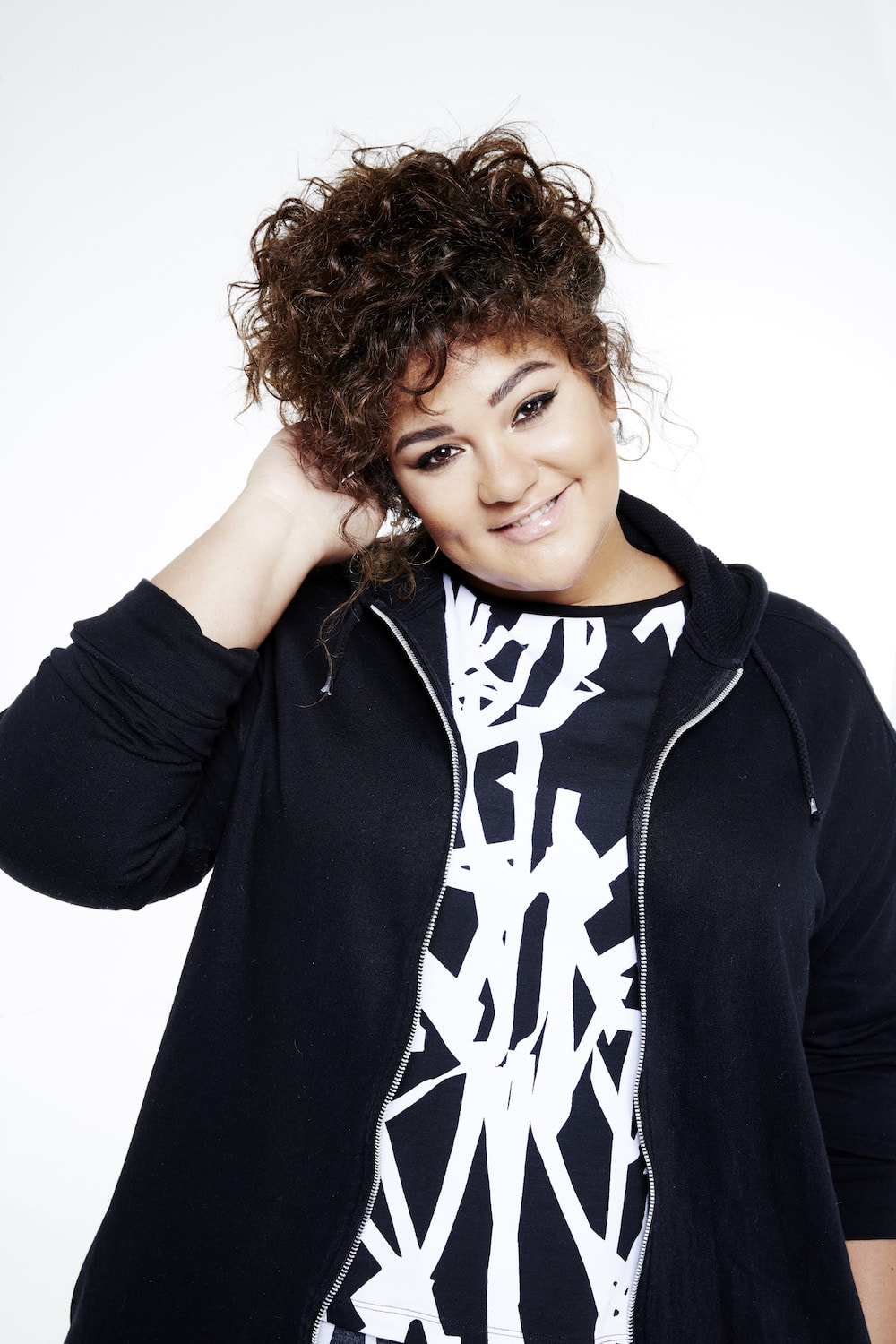
I want it to be an infinite girl guide...about trying to be the best version of yourself you can be
What do you say to help someone embrace body positivity?
Educate yourself. When you become aware that society and the beauty industry are capitalising and making money off our insecurities, that is empowerment enough to be like: “I’m not giving them any money. I’m not going to hate myself anymore.” Try to look at yourself as more than your body. I think there’s a lot of pressure for women to care what we look like, but take all of that away and you’re still worthy and still beautiful.
Some critics say body positivity is actually damaging people’s health. What’s your response?
It’s important to recognise that health isn’t always related to weight. You can be fat and healthy, or underweight and unhealthy. Health is a choice. If people want to live an unhealthy lifestyle, that’s up to them. They’re not promoting it. It’s saying: “Hey, you can love yourself.” I’m bigger now than I was three years ago, but I’m so much healthier because I’m not restricting my food or binge eating. I’m not tearing myself down at every god-given second. That to me is what health is. If you’ve got a healthy mind-set and are working on your mental health, your body will follow.
We’ve got to empower people to listen to their bodies. To wake up in the morning and think: “What do I fancy? What’s my body telling me to eat?” We’re put in this box where we’ve got to count calories and stop eating carbs, and it’s ruined the enjoyment of food because women are trying to be a certain size, but there’s no wrong way to be a woman.
When did you first recognise that your relationship with food was becoming unhealthy?
I think I’ve always had issues with food. I went to a performing arts school, so it may have been that. I always remember feeling the biggest, being the biggest. I danced every day so I was really fit, but I had big thighs and stretch marks. I thought I had to be thin to be successful, to be anyone in life, and I didn’t think I was good enough.
Women are trying to be a certain size, but there's no wrong way to be a woman
I was called fat when I was 12, and at the time I thought being fat was the worst thing in the world. I developed an eating disorder and I started restricting or not eating at all, throwing up or self-harming. I was on a warpath, and I couldn’t take my anger out on the person who called me fat. I couldn’t pinpoint why I was so devastated and what was going on with me, so it manifested and got worse as I got older. I thought that this was my life forever, and it’s taken its toll on me.
I met Emmy, my therapist, last year. I got diagnosed with post-traumatic stress disorder and disordered eating. I think society as a whole has a really warped view around food, so it’s no surprise that people have eating problems. But that’s why I’m trying to share my journey – the good parts and the bad parts – in the hopes that people can be inspired to go on their own journey.
You’re considered ‘the internet’s big sister’ – does that come with pressure, or was it something very natural for you?
I think it’s very natural. In terms of talking about the stuff that matters, there’s no pressure at all because it’s what I want to do. Even if I wasn’t doing YouTube videos, and I wasn’t a blogger, I’d still be helping people in some way. I used to work in a children’s care home before YouTube, so it’s just who I am. Luckily, I’m able to make a career out of helping people, which is mind-blowing.
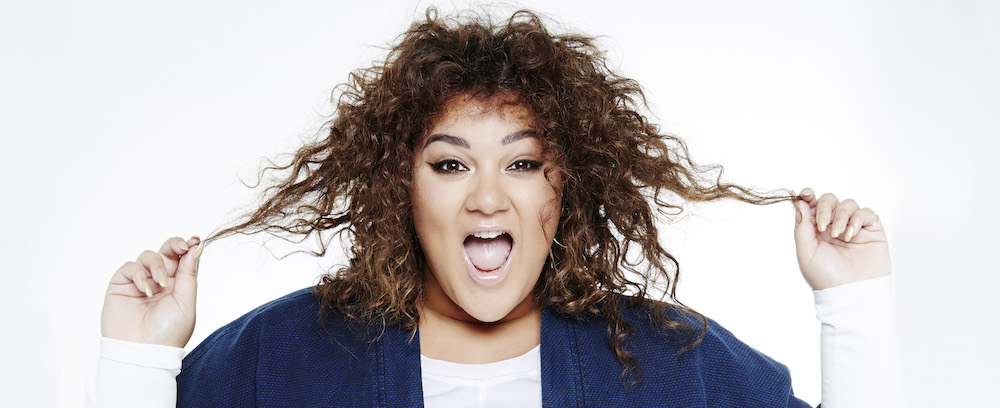
Body positivity is to showcase self-love and to give marginalised people a voice
You progressed from blogging on fashion and beauty, to opening up about mental health issues. That’s a big leap. What made you decide to move in that direction?
I was just over it. YouTube and blogging became oversaturated with marble backgrounds, fluffy rugs, and I just thought I can’t be arsed with this. I like that, but it doesn’t make me happy. Take that away from me and I’ll be fine, but take away my voice, and talking about body image issues, I need that. So, I just thought I’m going to talk about stuff I wish I could have seen and heard when I was younger. I think I’m at a place in my life where I owe it to myself, and my childhood self, to talk about the stuff I went through.
You’re now a published author! Did you enjoy writing your book?
It was exhausting, and therapeutic, and great, and all of the emotions. I had my therapist help me through it as well, because I was talking about quite heavy subjects.
How about that leap from blogging to full-blown manuscript?
I’m very aware of talking about certain subjects on the internet, because you can open a can of worms for people. But in my book it’s a safe environment, and I can really think about what I’m saying and how it’ll affect people. That was my chance to just have my say on every topic I want to talk about – domestic violence for instance, or mental health. It’s closure for me. My life from 26 and under is going to be out there soon, and I can move on and do other things.
What are your hopes for the book? Do you see it as a memoir or more of a self-help guide?
I want it to be an infinite girl guide, talking about what you’ve gone through and how to change it, and trying to be the best version of yourself you can be, despite all the crap that you’ve been through. It can be passed down generation to generation, because body issues and mental health issues are unfortunately always going to be a problem in society. My advice is out there for anyone and everyone to have at any given moment.
Grace's book No Filter is out now. Keep up to date with Grace's personal journey by checking our her blog at graciefrancesca.com or follow her YouTube channel Grace F Victory or twitter @GraceFVictory.
